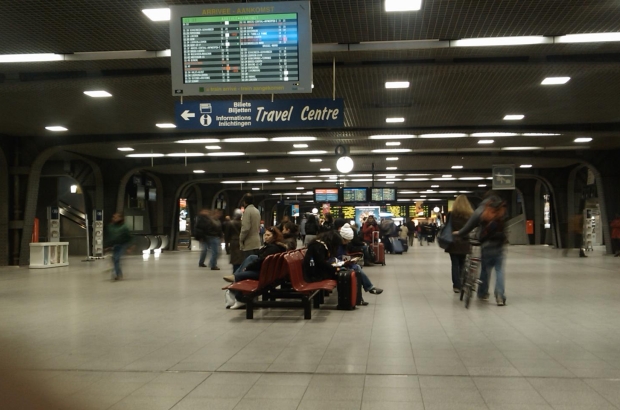- Daily & Weekly newsletters
- Buy & download The Bulletin
- Comment on our articles
Police intervention at Brussels-Midi results in 60 arrests
A major police action at Brussels-Midi railway station this weekend led to about 60 people being arrested.
The large-scale operation came not long after a formal letter from Brussels railway operator SNCB called for better public safety at the station, calling the security situation dire.
Most of the people arrested on Saturday were charged for illegal residence in Belgium, according to Sarah Frederickx, spokeswoman for the Brussels-South police zone.
In addition to about 100 police officers, staff from the immigration office also took part in the all-day operation on Saturday, with it long being known in advance that many of the public safety concerns were related to migrants.
Just the day before, federal interior minister Annelies Verlinden (CD&V) announced a three-pronged action plan to tackle concerns about Brussels-Midi station, which is the country's largest railway station and a gateway for many foreign travellers.
“Such an operation has an immediate effect, but we can't do it every day,” Verlinden said in remarks made from the station on the day of the operation, underlining the “enormous” effort involved.
“After the distress signal sent out by the SNCB and the Brussels region, we wanted to take visible action quickly. However, a lasting solution is needed to resolve the problems in the long term. These are essential parts of the solution.”
Verlinden cited those problems as poverty, housing, addiction and deteriorating infrastructure, and the National Crisis Centre is holding a second crisis consultation this week to discuss and evaluate the large-scale police action.
It will also be examining the three core issues behind the public safety concern: crime and illegal residents; homelessness, addiction and cleanliness; and the structural situation as it relates to security.
“It was high time this action took place,” said Verlinden. “But the real effort to be made is to work on the roots of these problems. The police can only do symptom control.”
Brussels minister President Rudi Vervoort (PS) was pleased with the operation, saying “the situation called for integrated coordination, with each institutional actor taking up and exercising its responsibilities”.
The coordinating role of the National Crisis Centre is only for a predetermined length of time and will eventually be transferred to the Brussels region.



















